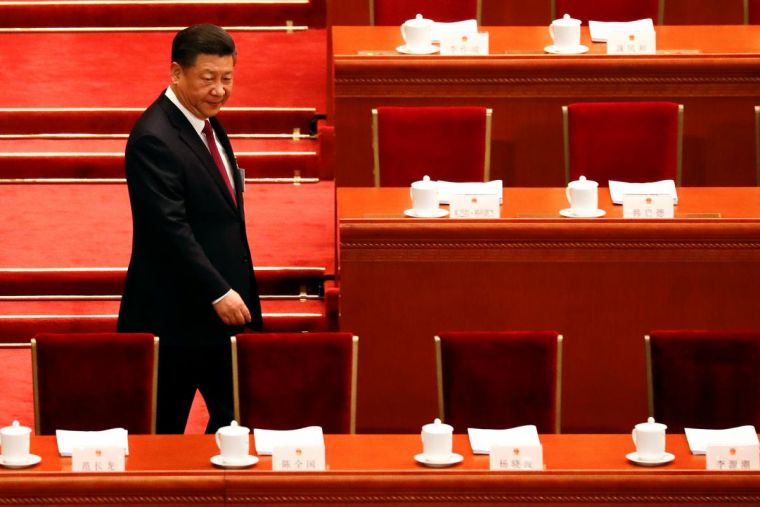Vatican challenged over secret deal with China

The Vatican has been criticised over plans to extend an agreement with the Chinese government on the appointment of bishops.
Vatican officials are reported to have told journalists this week that the arrangement, due to expire in October, will be renewed.
Reuters reports that there will not be any changes to the deal and that it will not be extended to include Hong Kong.
Catholic author James Roberts has raised questions about the deal and its implications for religious freedom in China.
He suggests the Vatican should not be making any deal with China until it agrees to uphold individual liberties.
"In assessing the secret deal between the Holy See and the Chinese Communist Party (CCP), one first has to ask why the deal should be secret. We do not know. But the optics are dreadful from the start," he said.
"Secondly, we must reiterate that this is a deal not between the Vatican and the representatives of the Chinese people. It is a deal between the Vatican and the oppressors of the Chinese people.
"One must then ask what could be the benefits of a deal with a party responsible for the incarceration without trial, torture, humiliation, and total surveillance of a billion people. The only answer surely, is none."
Roberts, co-author of Trump and the Puritans, went on to say that there should be "no negotiation on the question of the fundamental human right of religious freedom".
"The party is dictating how the Gospel is to be taught and interpreted, with the final arbiter on any question regarding our faith being the ruling of the Communist Party hierarchy," he said.
"Clerics who dissent are imprisoned and will continue to be imprisoned. Children are being deprived of catechesis, so that they can be indoctrinated - no other word will do - by the Communist Party.
"You cannot negotiate with any group whose only position is to insist on its own absolute and totalitarian power.
"You can only say 'no talks until you desist from dictatorship', and support the victims - the people of China - in whatever way is possible.
"The crimes against humanity of the CCP are legion, and the job of the Holy See should be to marshall international support for its victims."
Christian Solidarity Worldwide (CSW) has also raised concerns over the deal, which comes amid ongoing reports of a crackdown by President Xi Jinping on Christians in both official and unofficial churches across China.
One source, who cannot be named for security reasons, told CSW that there was a feeling of disappointment among Christians over the renewal of the agreement.
"We cannot feel any benefit [from the agreement]", they said, adding that "all religions are suffering – it is no surprise that Catholics are suffering as well".
CSW's East Asia Team Leader Benedict Rogers said the human rights situation in China has "rapidly and significantly deteriorated" in recent years, with the demolition of places of worship, mass arbitrary detentions, enforced disappearance, intrusive surveillance, and restrictions on freedom of movement.
The crackdown is affecting not only Christians but Uighur Muslims, Tibetan Buddhists and members of Falun Gong.
One Catholic leader expressed frustration that bishops already recognised by the Vatican are required by the Chinese government to be 're-inaugurated' under the agreement.
"If someone is already a bishop, if he is appointed again in the name of the Chinese Catholic Patriotic Association, it is like denying that he was a bishop before," they said.
"But now all over the country it is like this. Through this, you can work here openly. Otherwise, you can't do anything."
Mr Rogers warned that Catholic leaders not recognised by the Chinese government are facing harassment and detention, and in some cases are disappearing.
At the same time, churches are under pressure to show their loyalty to the CCP by flying the national flag, removing religious symbols, and stopping religious activities for under-18s.
"We are also deeply concerned about the lack of transparency concerning the agreement," he said.
"We call on the Vatican to put freedom of religion or belief at the centre of all its decisions concerning Catholics in China, and to prioritise the release of prisoners of conscience still detained or disappeared in China, including Bishop James Su Zhimin."
The US Commission on International Religious Freedom has made similar calls.
"Communist China continues to persecute Chinese Catholics. USCIRF hopes any future deal between the Vatican and China is rooted in the protection of religious freedom," it tweeted on Tuesday.











